
Amino acids are the building blocks of protein, which is necessary to develop strong muscles in children and adults. Our bodies contain some of the amino acids we need, but nine essential amino acids are found in foods, such as lean meats, eggs, dairy products and whole grains. Amino acids do not break down during the cooking process, but may be lacking in some diets -- particularly vegetarian diets.
Amino Acids
Cooking does not destroy amino acids or reduce their quality. Most foods high in amino acids, such as eggs, meat and poultry, are made safer and more palatable to eat through cooking. If you regularly serve cooked eggs and meat, your family is likely getting enough amino acids.
Considerations
Vegetables, legumes and whole grains may have essential amino acids, although they may not have them in sufficient amounts. For example, wheat is high in sulfur containing amino acids, but low in lysine, while the reverse is true for legumes. If you're contemplating a vegetarian diet for your family, talk with your pediatrician to ensure that children are getting the amino acids, calcium, iron and vitamin B they need. Incorporating a wide range of grains, legumes and vegetables into the diet usually provides sufficient nutrition.
Other Nutrients
Although amino acids aren't damaged during the cooking process, boiling or long cooking can destroy water-soluble vitamins, such as vitamin B and C. To preserve the nutritional quality of fruits and vegetables, leave the peels on when possible and steam, stir-fry or microwave vegetables.
Recommendations
Although cooking techniques won't destroy amino acids, they may alter the quality of the food. Chicken, meats and eggs become tough or rubbery when overcooked or cooked at high temperatures. Milk may separate or develop a grainy texture when boiled. Cook meat by simmering, baking, grilling, roasting or broiling it only until it is fully cooked. Avoid boiling milk when making cream sauces, puddings or other dishes calling for heated milk.
Related Articles
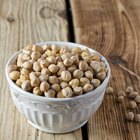
List of Vegetables That Contain Protein ...
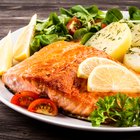
Food Sources of Phosphatidylcholine
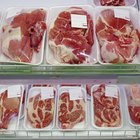
How to Feed a Large Family Healthy ...

List of Vegetables for the Paleo Diet

The Best Types of Pans to Cook ...
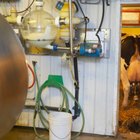
How to Cook With Almond Milk

Are There Foods That Heal Age Spots?
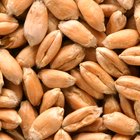
How to Cook Soft Wheat Berries

Are the Nutrients Lost in Slow Cooking?

The Positive Effects of Using a ...
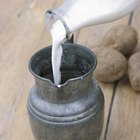
How to Keep Scalloped Potatoes From ...

How to Make Scrambled Egg With Spinach

How to Cook Beef Florentine
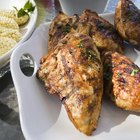
Can I Cook a Chicken Five Days After ...
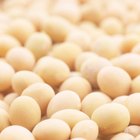
How to Cook Raw Chickpeas or Garbanzo ...

How to Make Creamy Potato Soup
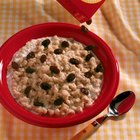
How to Make Quaker Oatmeal
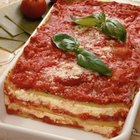
How to Use Ricotta Cheese for Cream ...
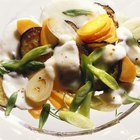
Rules for a Vegetarian Diet

Caregiver Support Group Discussion ...
References
- Oklahoma State University Extension; Vitamins and the Body; Janice R. Hermann
- WebMD; Vegetarian Diets and Organic Food; February 6, 2009
- North Dakota State University Extension; What Color is Your Food? Julie Garden-Robinson; May 2011
- Janice Gneiting, Registered Dietician; Parker, Colorado
Resources
Writer Bio
Julie Christensen is a food writer, caterer, and mom-chef. She's the creator of MarmaladeMom.org, dedicated to family fun and delicious food, and released a book titled "More Than Pot Roast: Fast, Fresh Slow Cooker Recipes."
Photo Credits
Goodshoot/Goodshoot/Getty Images